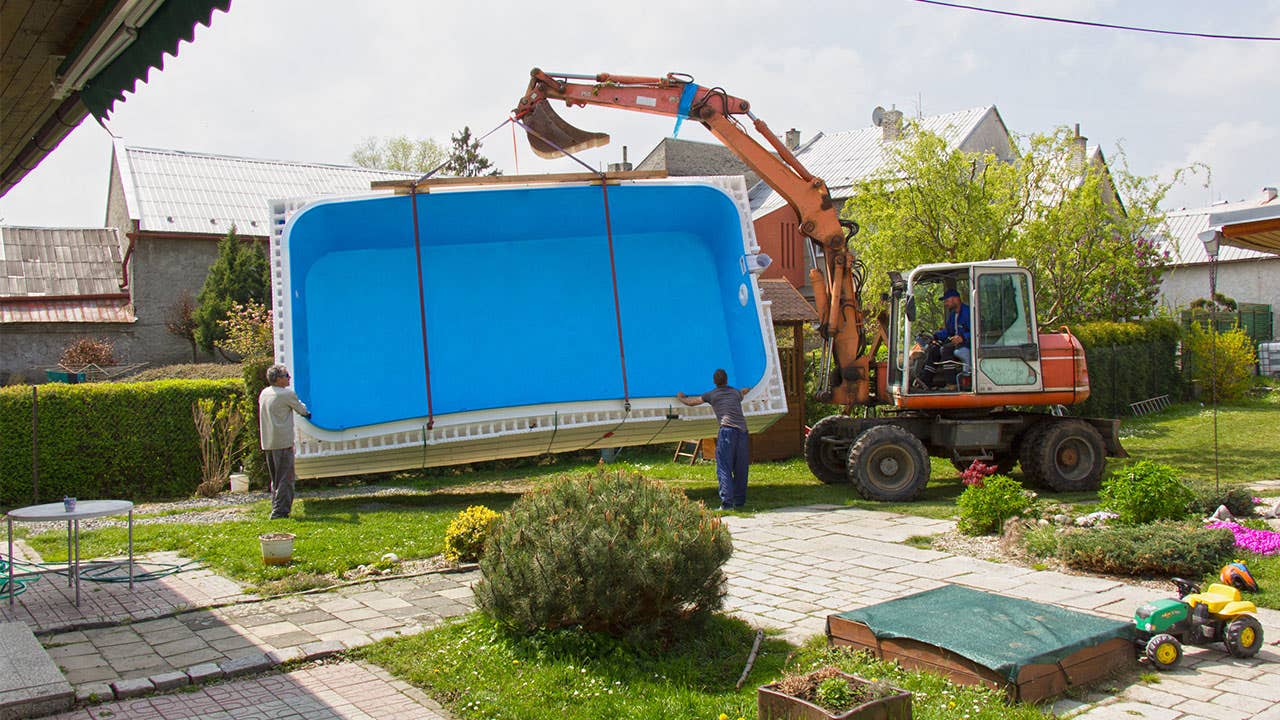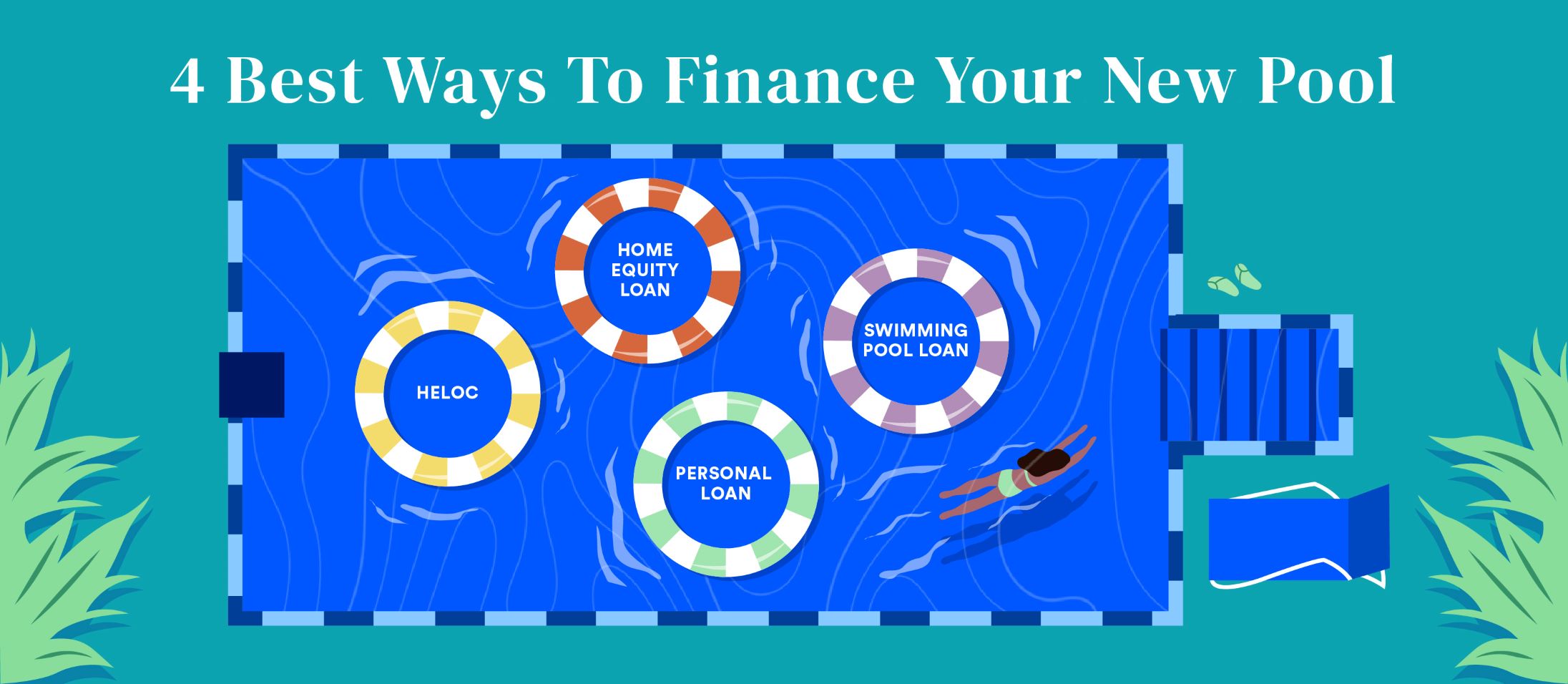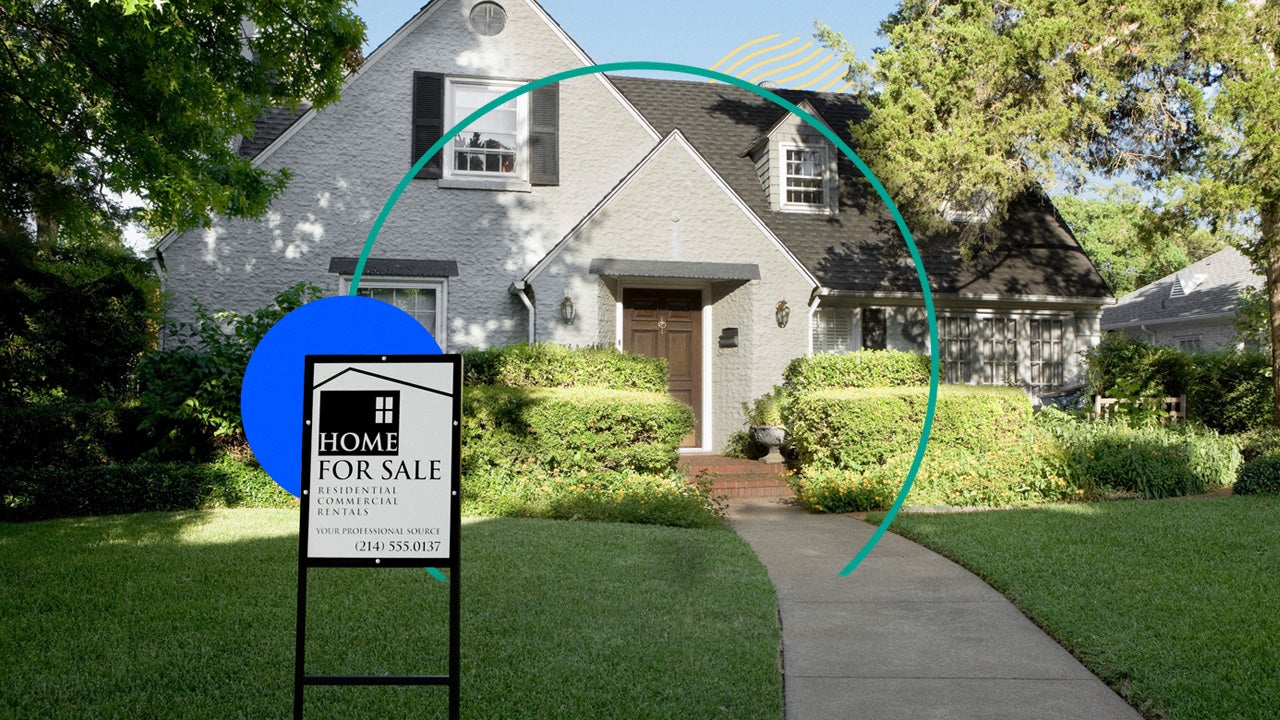How to finance a pool in 2025 — and what you should know first

Key takeaways
- Personal loans, home equity loans and HELOCs are common ways to finance a pool. Some companies offer in-house financing, which is often more expensive but can be more convenient.
- Labor costs make up a large portion of the total price of installing a pool. If you were to install it yourself, you could save roughly $17,000 in labor fees.
- The total cost of a swimming pool will vary based on where you live, your backyard and local regulations.
Adding a swimming pool to your backyard can boost your property value and your enjoyment of your home. However, you shouldn’t dive into pool ownership without careful thought — and some money to spend.
The average cost to install an in-ground pool is $62,500, but this figure can range anywhere from $25,000 to $100,000. Swimming pool costs vary depending on your location, yard, and pool dealer’s service packages. This means the price of a swimming pool project might be even higher than what your pool dealer originally quoted.
If saving tens of thousands of dollars to install a pool in your home isn’t feasible, you can finance a pool. Pool financing lets you pay off a pool build over time.
How to finance a pool: 4 options
Because installing a swimming pool is expensive, many homeowners turn to loans to finance the cost. Once you figure out how much money you’ll need for your new swimming pool, shop around and compare lenders to find a personal loan or other loan type that works best for you.
Once you are approved for pool financing, you’ll typically receive all of your loan funds upfront and will be given a set repayment timeline. Your income, credit history and credit score will be major factors in determining the interest rate and monthly payment of your loan.

1. Home equity loan
Using a home equity loan for financing swimming pool projects offers low interest rates but puts your home at risk if you’re unable to pay the loan back.
A home equity loan lets you borrow against the value of your home and use it as collateral, thus helping you secure a competitive interest rate. Home equity loans work like personal loans — they come with a fixed interest rate, a fixed repayment timeline and a fixed monthly payment that will never change.
Using your home as collateral does present some added risk. For example, your home will be subject to foreclosure if you stop making your home equity loan payment, which is not the case with personal loans. You can typically only borrow up to 85 percent of your home’s value minus any mortgage payments, so this option will only work for consumers with a lot of untapped property equity.
A home equity loan is best for people who have significant home equity and are looking for fixed monthly payments.
2. HELOC
HELOCs offer more flexibility when financing swimming pool expenses, especially if your pool dealer doesn’t offer an all-inclusive package.
A home equity line of credit (HELOC) is similar to a home equity loan. With a HELOC, however, you get access to a line of credit that you can borrow against as needed — typically with a variable interest rate. Because your rate may go up and down due to rate fluctuations in the market and the amount you borrow isn’t set in stone, your payment can also change throughout the life of the loan.
As with a home equity loan, using a HELOC to finance your swimming pool does come with a few disadvantages. A HELOC also uses your home as collateral, meaning you risk foreclosure if you don’t make your payments. You are also subject to the same equity limits, meaning a HELOC is only a good option for borrowers with significant amounts of home equity.
A HELOC is best for homeowners who have substantial equity and are looking for more flexibility with their monthly payments.
3. Personal loan
Personal loans allow for financing swimming pools at a pre-set loan amount, and it’s a loan option that doesn’t put your home on the line if you default.
A personal loan lets you borrow a lump sum at a fixed interest rate and with a fixed repayment period. This means you’ll be charged a regular monthly payment that will never change. Another benefit is that you’ll know exactly when you’ll become debt-free.
Personal loans are unsecured, meaning you don’t have to put your home down as collateral to get approved. If you have very good or excellent credit — or any FICO score over 740 — you may even be able to qualify for a pool loan with a fixed interest rate as low as 5 percent. Personal loans also often come with low or no fees, making them an inexpensive option compared to other financing options.
A personal loan is a great option for someone with good credit who doesn’t want to tie up their home’s equity or risk a secured loan.
4. Swimming pool loan through the dealer
Financing swimming pool costs directly through your pool dealer can be a convenient but higher-cost option.
Another option to finance your swimming pool may be a loan through the dealer you use to purchase it. If you opt for dealer financing, carefully read the terms you’re agreeing to, and be prepared to pay higher rates. Still, if you’re not able to qualify for a personal loan or financing using your home’s equity, this may be the only option for financing your swimming pool.
A swimming pool loan is the best option for someone who isn’t able to qualify for a home equity loan, HELOC or personal loan.
Other considerations when financing a swimming pool
Before you apply for pool financing, make sure you’re aware of the following details:
- Monthly payment: Speak with a few pool contractors to get a ballpark estimate of your final price. Once you have a few estimates, enter the information into a loan calculator to see your predicted monthly costs. If you want to pay your loan off quickly, you’ll need to pay more each month. If you plan to spread your payments out over a longer period of time, you’ll have a smaller monthly amount but will pay more in interest.
- Repayment term: If you plan on selling your house in a few years, you’ll likely want to avoid a long loan term. This is especially true if you used your home equity to secure the loan, because you’ll have to pay off any outstanding debt obligations when you sell.
- Appeal to future buyers: A home with a pool may be worth slightly more — but it may also appeal to a smaller group of buyers since not everyone wants a pool in their backyard.
- Existing debt: If you already have several credit cards and bills, you may want to consider eventually getting a debt consolidation loan so everything can be under one payment.
How much does an in-ground pool cost?
The pool’s size, the material you choose, the type of water you use and how often maintenance is performed all change how much the pool costs. You should do your own research and consult with a swimming pool contractor before making any decisions.
- Each pool type has a different replacement schedule. Vinyl pools have liners that need to be replaced every 10 years and each replacement costs $3,000 to $7,500. A new layer of material needs to be reapplied to concrete pools every 10 to 15 years, and that costs $8,000 to $10,000.
- The annual cost of owning a pool could cost you anywhere between $3,000 to $6,000.
- The average weekly cost of pool maintenance can cost anywhere between $80 to $150.
- Vinyl liner pools are the least expensive in-ground pool option, costing anywhere from $25,000 to $65,000.
Cost by material
| Material | Installation cost | Details |
|---|---|---|
| Fiberglass | $30,000-$85,000 | Minimal maintenance Lasts 25+ years |
| Concrete | $50,000-$120,000 | Most expensive to install and maintain Must be resurfaced every 10-15 years Lasts 50+ years |
| Vinyl | $25,000-$65,000 | Liner needs to be replaced every 10 years |
Cost by size
| Size | Square feet | Average installed cost |
|---|---|---|
| Small | 10×20 | $16,000-$50,000 |
| Medium | 14×28 | $31,400-$98,000 |
| Large | 18×36 | $51,800-$162,000 |
Yearly maintenance cost
| Yearly cost ranges | Average service cost |
|---|---|
| National Average Cost | $120 |
| Minimum Cost | $50 |
| Maximum Cost | $650 |
| Average Range | $80-$150 |
Source: HomeGuide
In addition to the cost of the pool itself, factor in the cost of renovations around the pool. This could include fencing, a deck and a cover for the off-season.
You should also factor in labor costs if you intend to hire someone to install the pool. The average labor costs for building a pool are between $8,000 and $30,000 depending on the specifications of the project and the materials used.
Installing the pool yourself could save you roughly $17,000. If you decide to install the pool yourself, make sure you have the tools and skills necessary and have all the required permits.
Bottom line
There’s no single best loan to get for a pool. A personal loan could be a good bet if you need a large loan and have a good credit score, while a home equity loan or HELOC could be better if you’re looking for the lowest interest rate possible and don’t mind using your home as collateral.
Frequently asked questions
As with most things, there’s not a single best loan to get for a pool. A personal loan could be a good bet if you need a large loan and you have a good credit score, while a home equity loan or HELOC could be better if you’re looking for the lowest interest rate possible and you don’t mind using your home as collateral.
Why we ask for feedback Your feedback helps us improve our content and services. It takes less than a minute to complete.
Your responses are anonymous and will only be used for improving our website.
You may also like

How does a condo mortgage work?

How to manage a business loan: 6 tips

5 ways a financial advisor can help you reach your goals in 2025



